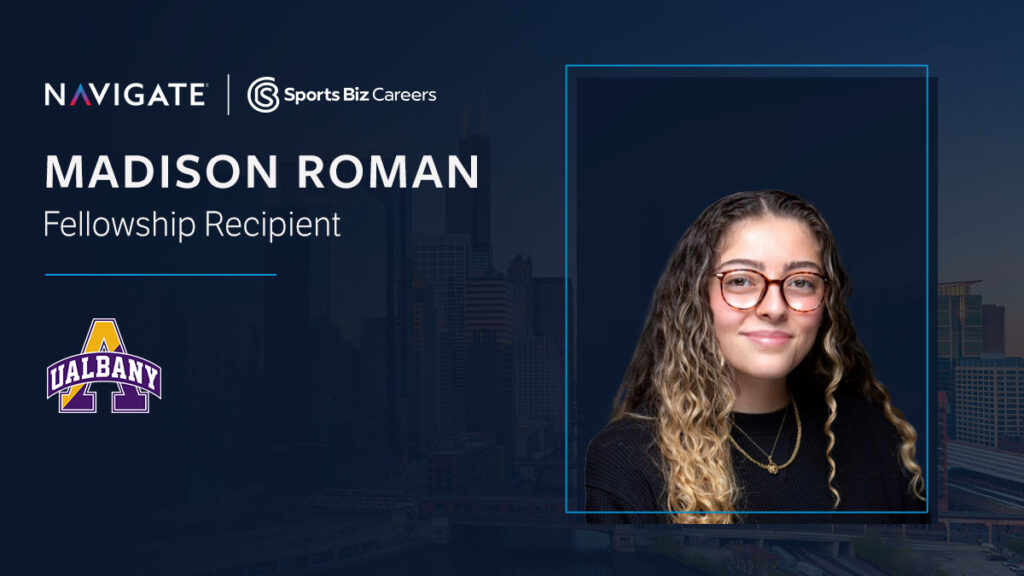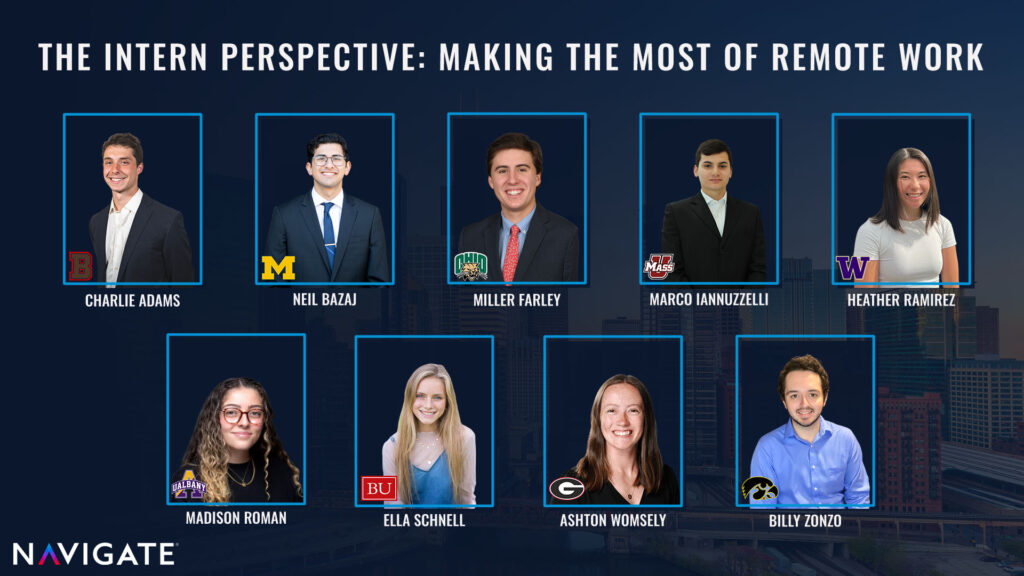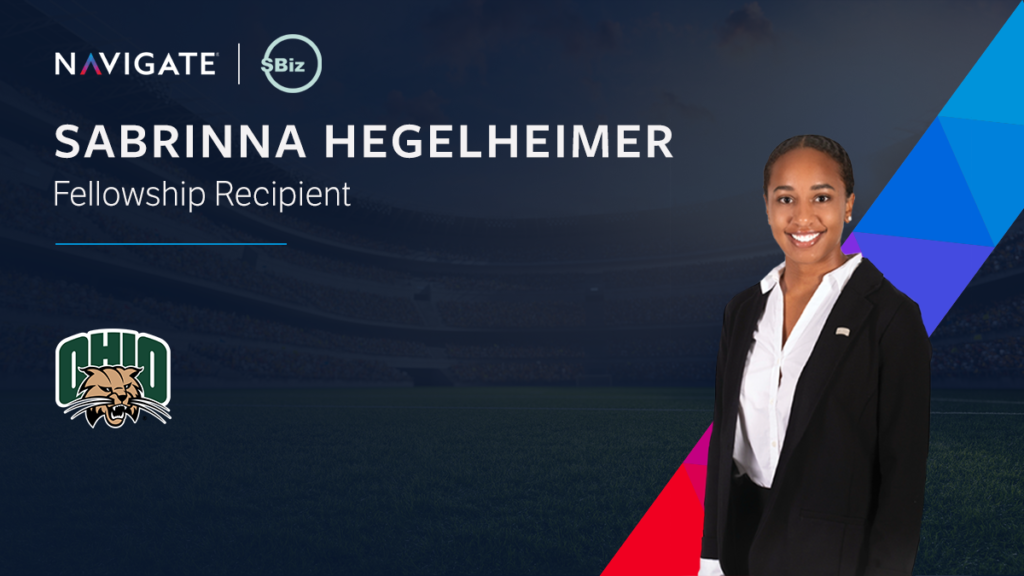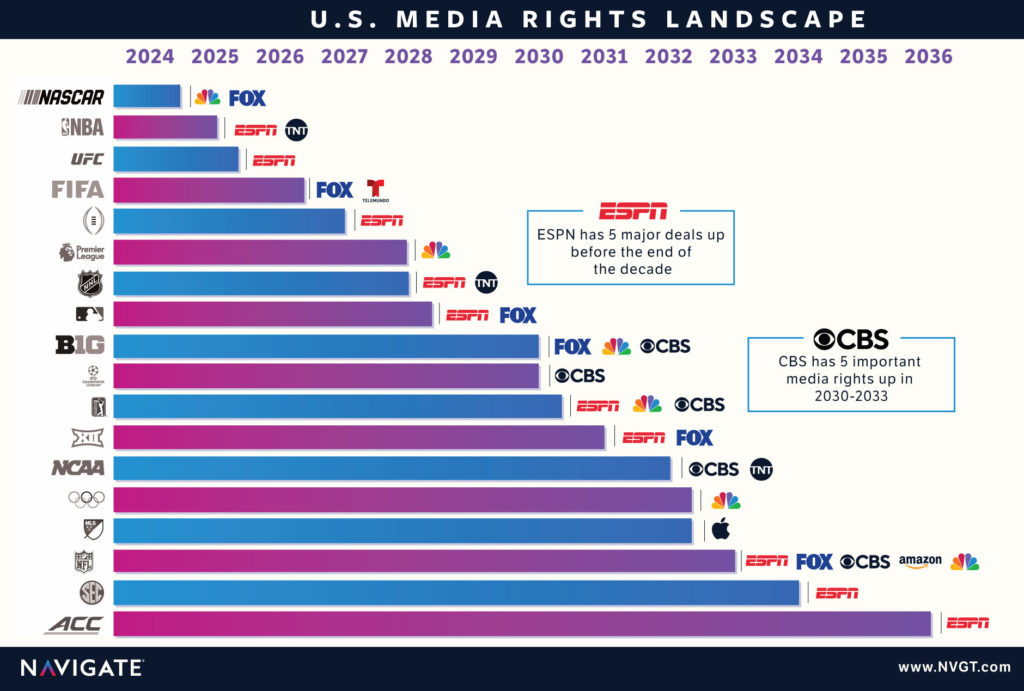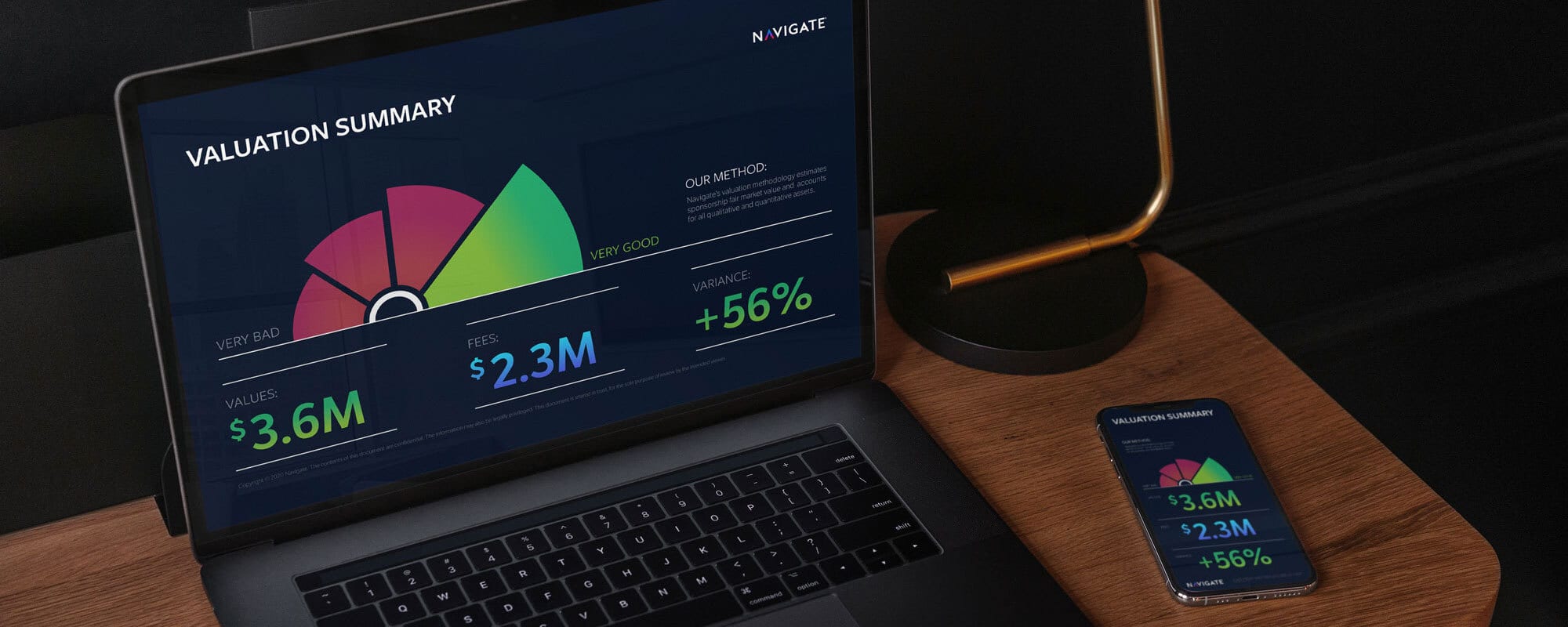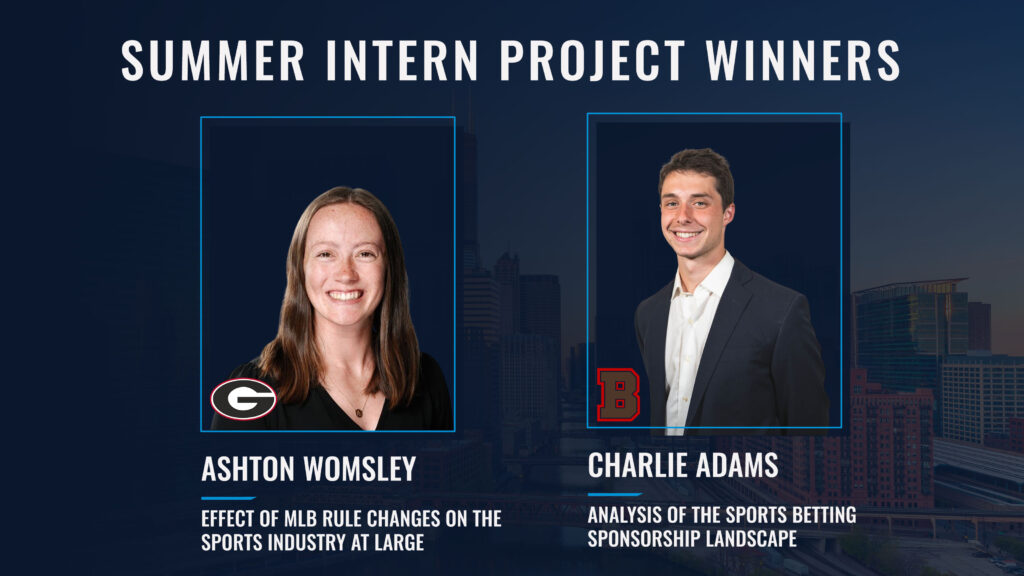
Third Annual Intern Competition
This summer, we conducted our annual intern project competition at Navigate with an incredible pool of talented young professionals. Our nine interns selected a topic of their choosing relating to sports business, worked diligently to create insightful reports, and then presented their findings to the entire Navigate team. All of the projects were educational and engaging, and for the third year in a row we have co-champions, Ashton Womsley and Charlie Adams!
Both Ashton and Charlie delivered projects that provided innovative and actionable ideas for Navigate to use in the future to help guide clients and to continue driving the sports industry forward. We asked the pair to tell us more about their goals for their reports and how the process went overall. Continue reading to learn more about their incredible projects!
Ashton Womsley – “Effect of MLB Rule Changes on the Sports Industry at Large”
When I was trying to decide what to do for my project, I kept coming back time and time again to the new MLB rule changes because, at the time, it really was the talk of the town in the sports industry. With it being the first season that the changes were implemented, sports journalists and baseball experts all over the country were debating the impact that they would make on the game and whether baseball would ever be the same. Navigate played a role in the research behind that led to the implementation, so there was significant internal discussion as well. As a baseball fan, I was excited by the increased action and the quicker games, especially in the early months of the season, while baseball purists were arguing that the beauty and strategy of defensive baseball might be ruined forever.
I really wanted to understand the impact that the changes had not only on the game itself, but also on its external stakeholders. What would quicker games mean for sponsors who rely on commercial ad time and a certain amount of exposure for their logo during television casts? Would teams start losing money from fewer concession sales now that games were shorter? How would shorter games impact the players’ physical wellbeing and health? What could this mean for other sports if they were to implement rule changes? All of these were questions that sparked the inspiration for my project. I presented on not only what the rule changes were, but why they are important for baseball as well as for other sports, ultimately crafting a story to show how my research could help Navigate in the future.
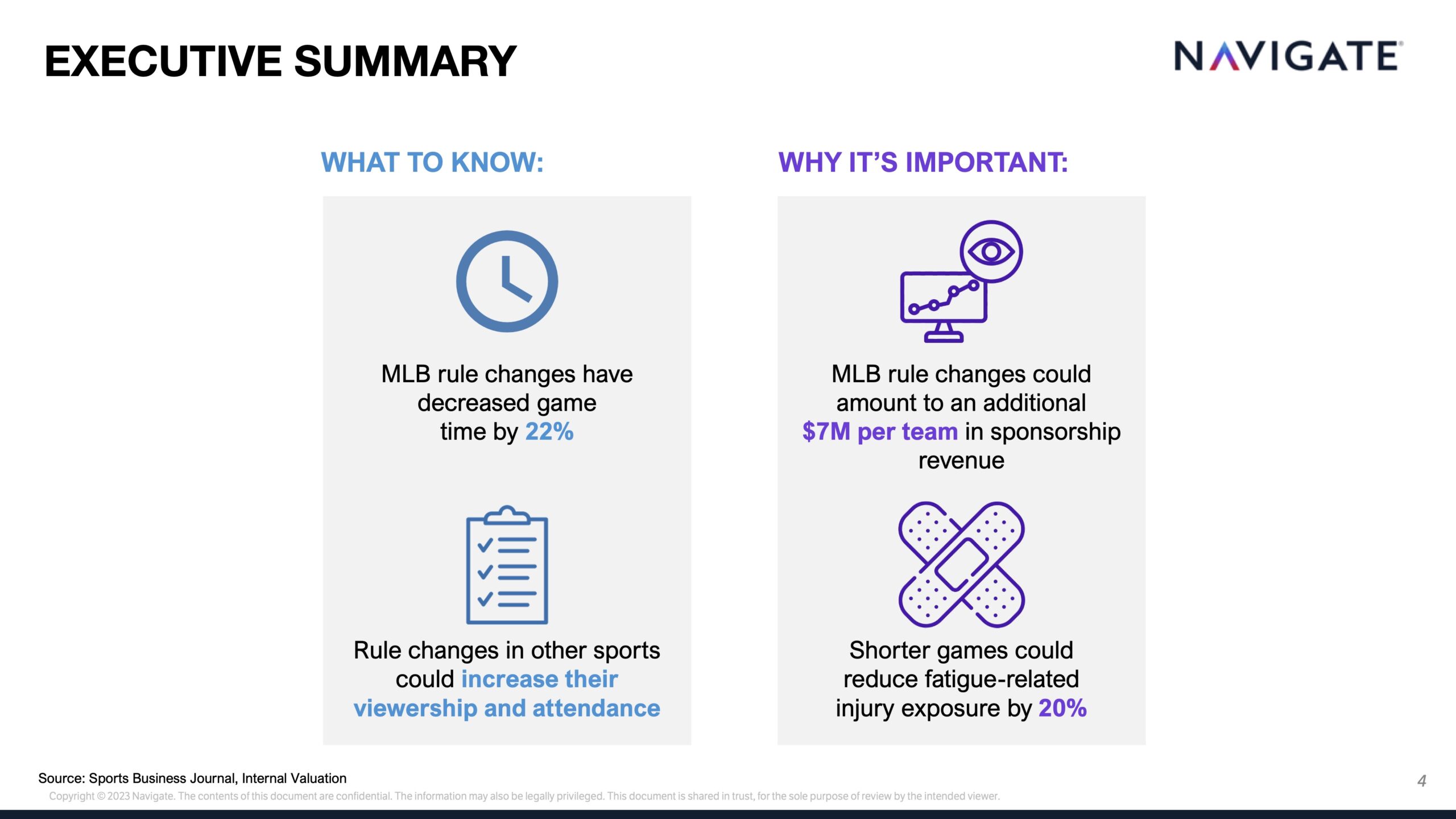
What did you learn the most from this project?
This project taught me what it’s like to run a project in this industry entirely on my own from start to finish. I was able to learn how to navigate a multitude of different resources and gather the data that I needed. From there, I learned how to draft a proper story from the data and turn that into tangible insights that the Navigate team could digest and remember. Finally, I was able to gain experience creating and delivering a strong and powerful presentation to the team. All these skills will help me in my career wherever I land, as they are transferrable to any company or job. I am so thankful for this experience because it showed me what I am capable of and taught me lessons of perseverance in the face of challenges, including how to pivot when you might not be on the correct path.
What aspect of your project are you most proud of?
What really brought my project to life and to the next level was my desire to run a valuation to go along with the rest of the story that I was telling. I wanted to create an actionable insight that proved the quantitative impact that these changes could have on sponsors which Navigate could utilize in the future. I had run valuations earlier in my internship, but I wanted to take what I had learned and make it my own. This was incredibly challenging, as I had to find a new way to value the impact outside of what I had previously learned. With the guidance of my manager, Tatu Tiililä, I was able to find a new approach to the valuation.
From this new method, I calculated an increase of $210M in sponsorship revenue for the MLB just from the current rule changes. This equates to ~$7M per team in additional revenue per year. I was incredibly proud of the work that I had put in to make this valuation a reality and was so excited to show the team what I had created.
Below is a summary of my valuation as well as additional factors that could impact and further increase the value of sponsorship for the MLB in the future from the rule changes.
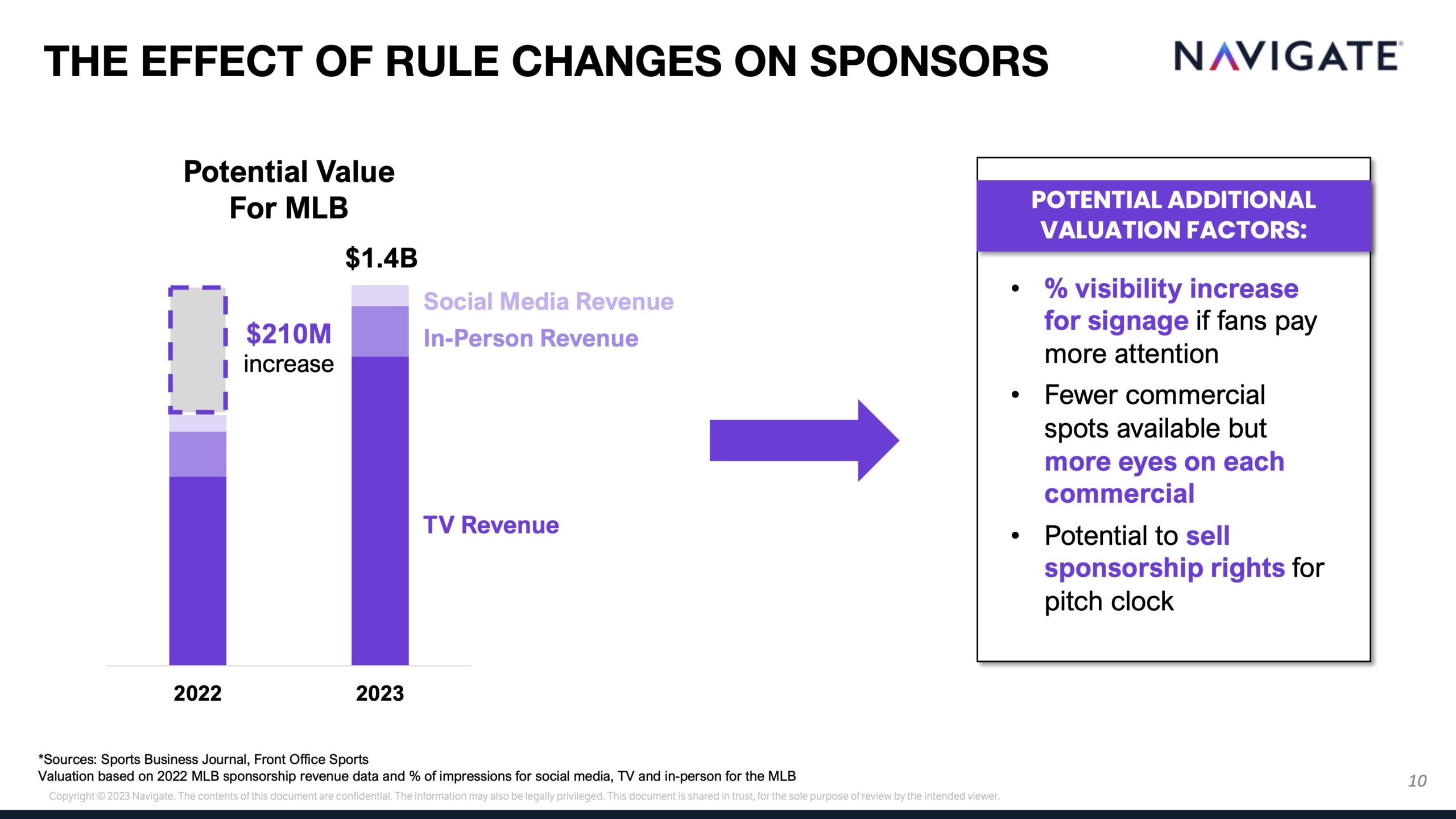
Anything else you’d like to share about your project?
One of the topics that I found the most interesting to research and report on was the impact that the shorter games could have on injuries to the players, because it was an avenue that I felt wasn’t being discussed enough among journalists and casual baseball fans. The fan experience and the impact on revenue were getting the most airtime during impact discussions this summer.
What I found was the opposite of what many baseball enthusiasts feared. The pitch clock resulted in shorter game times, which was associated with decreased injuries among players in the minor leagues, where the rule changes were first tested.
See below for a slide on how shorter games not only affect injuries in baseball, but also in basketball and football too. This is an incredibly important narrative to tell when talking to league or conference offices about the potential for rule changes in additional sports.
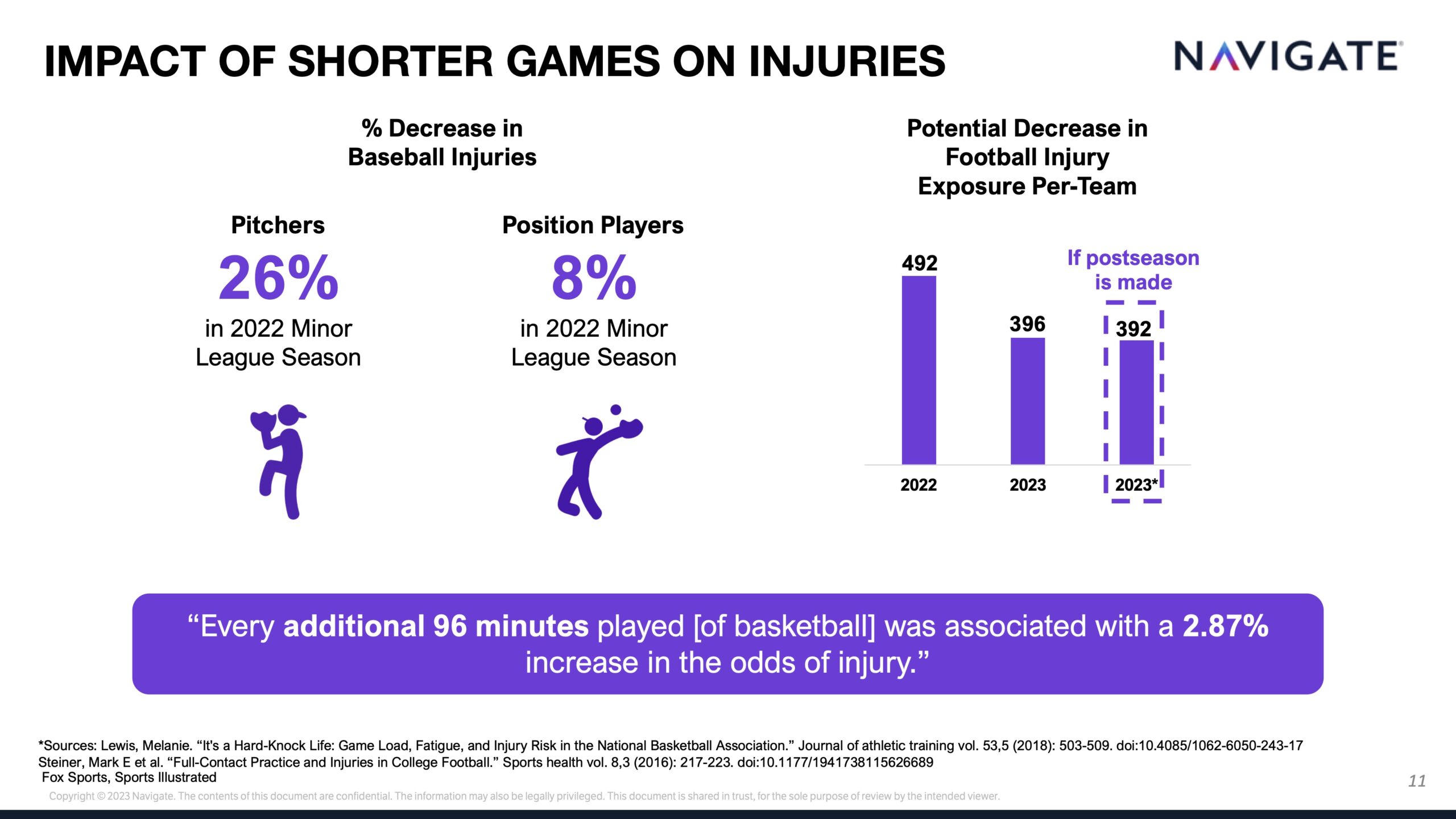
Charlie Adams – Analysis of the Sports Betting Sponsorship Landscape
When thinking about what path I wanted to go down with my project, I had two things in mind. Firstly, I wanted to educate the Navigate team on a topic that not only would add value now, but continue to add value in the coming years. Secondly, I wanted to work on a project that I was genuinely curious and passionate about and that would allow me to learn about a topic on which I didn’t hold much previous knowledge. I landed on sponsorship opportunities in the sports betting industry for these two reasons.
I quickly learned that sports betting is rapidly growing and will continue to grow over the next decade as legalization and interest increase in the U.S.. I saw an opportunity to educate the Navigate team on growing sponsorship opportunities and the support that we could offer to our clients. At the same time, as an avid sports fan and statistics fanatic, I wanted to learn more, and this project gave me the perfect avenue to do so. Sport offers an escape and community for many people and something to look forward to throughout the routine of life. With this idea in mind, my excitement in this topic stemmed from the idea of improving the overall gameday experience for fans around the country and I see sports betting as a great way to do so. My goal was to showcase how sports betting companies could improve their partnerships with teams and leagues through sponsorship opportunities.
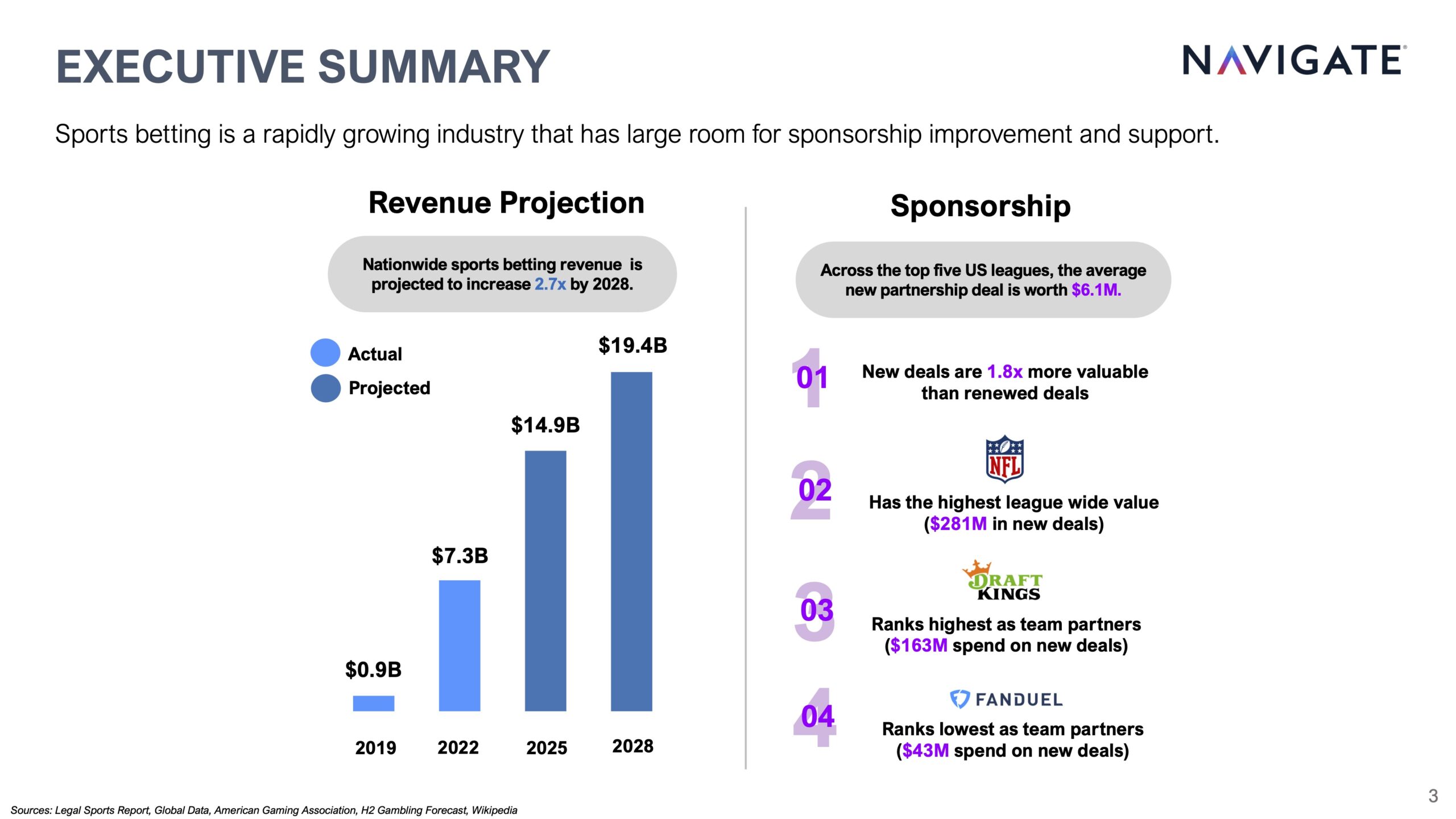
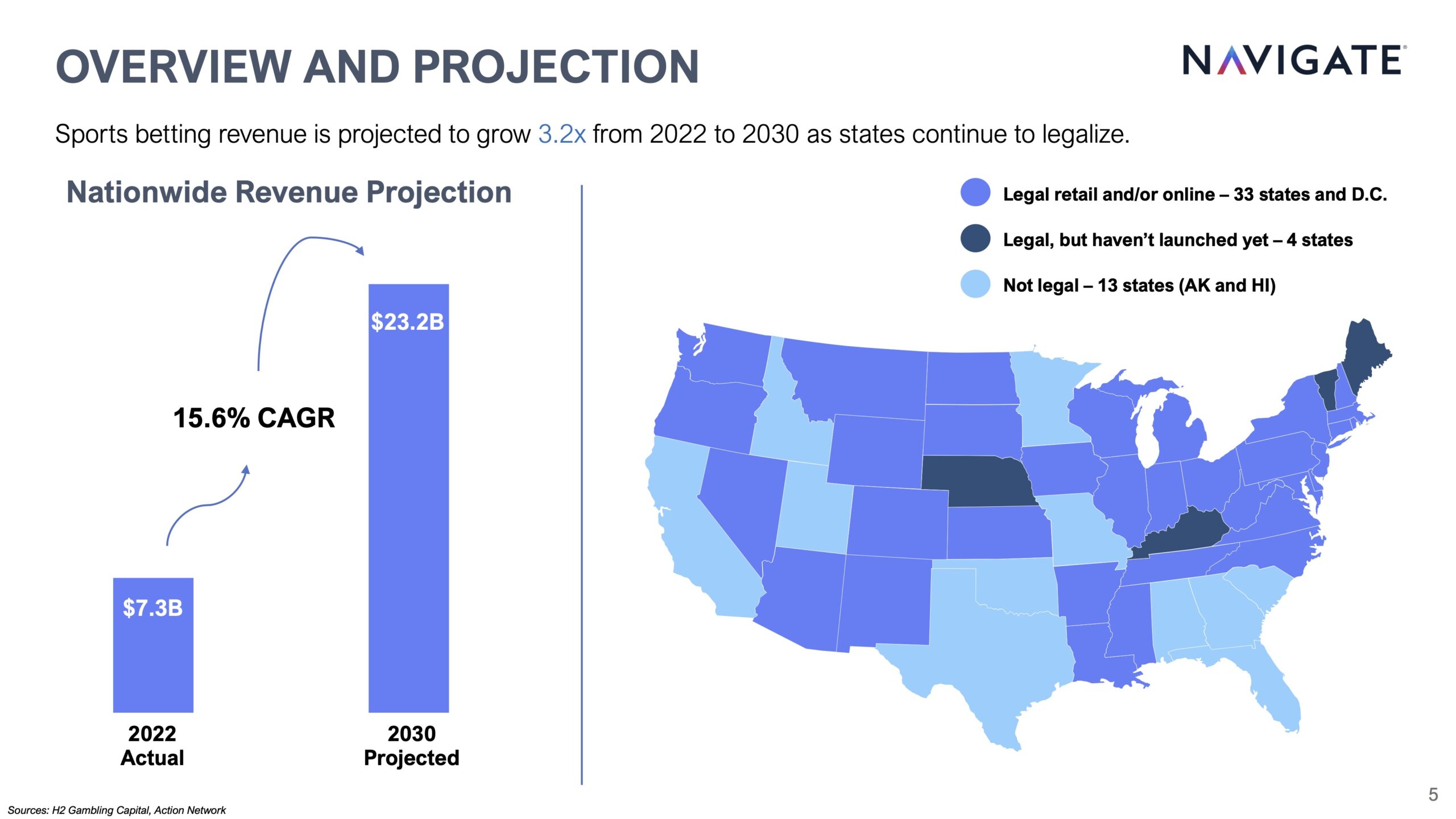
How will this project help you move forward in your career?
This project helped progress my career in more ways than one. It allowed me to take true ownership of a complete project that I was responsible for completing start to finish which I hadn’t had the opportunity to do yet in a professional setting. In doing so, I gained skills including research and data manipulation experience, time management skills as I worked through different phases on my project, and great public speaking and presentation experience.
What was the biggest challenge you faced when creating your presentation?
The biggest challenge I faced throughout the course of my project was pivoting ideas and finding new ways to approach the story I wanted to tell. I started with an outline and as I moved along in my project, I had to find new strategies and ways of presenting the most meaningful information. Whether that was conducting additional research closer to the deadline, changing the data in my slides, or completely switching up the visuals of my presentation, I was forced to pivot several times. While this was a challenge, it was an invaluable learning experience where I realized that having remain flexible throughout the course of a project is sometimes necessary and something I can continue to get better at. While an open-ended project like this can be challenging and stressful at times, it allowed for an incredible opportunity for me to be put in uncomfortable positions that required me to take full responsibility and figure out on my own which young professionals don’t always have the opportunity to do.
Charlie’s work also contributed to a Navigate thought leadership piece about the precarious landscape of sports betting sponsorship.
If you’re interested in learning more about our internship program, please email Kayla Ketring at Kayla@NVGT.com

